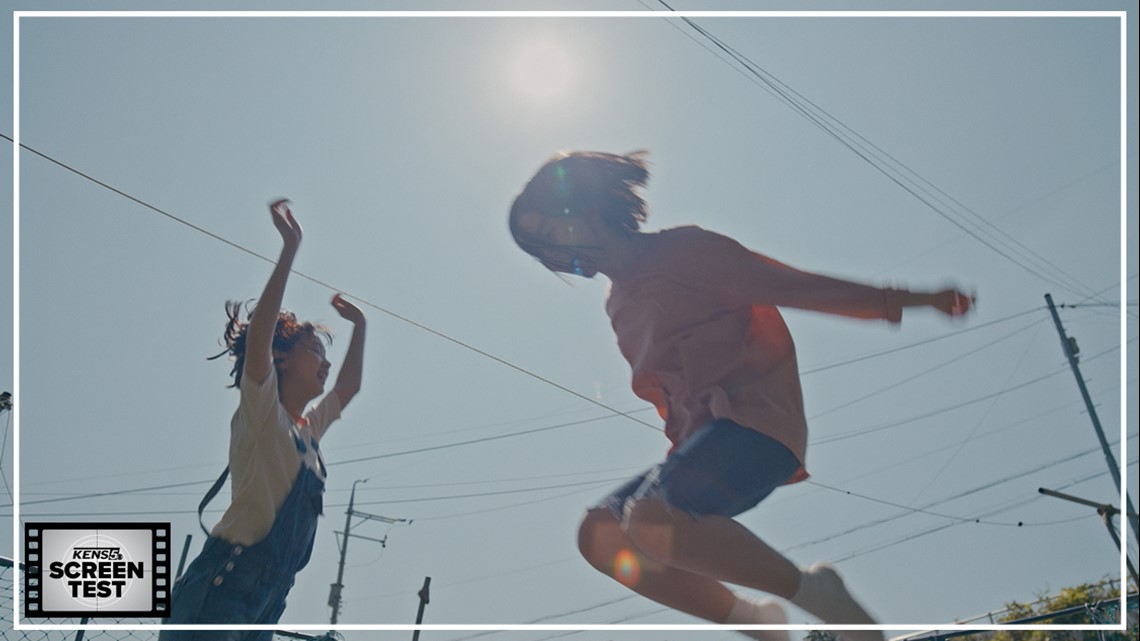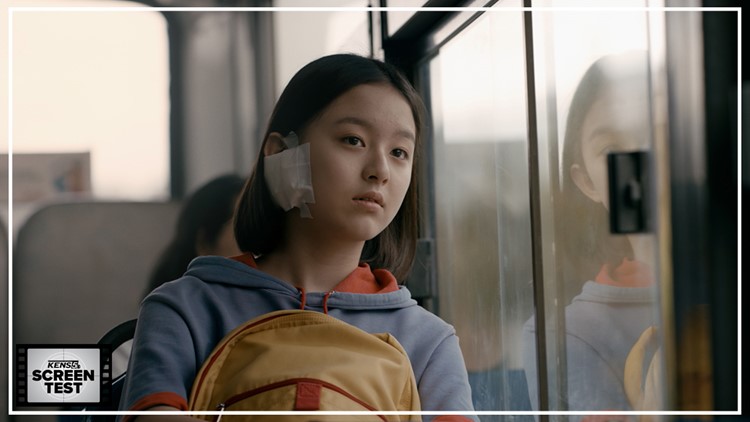Life’s cruelties are casual and reconciliation is rare in Bora Kim’s tender whisper of a drama, “House of “Hummingbird,” a kaleidoscopic collection of a teenager's experiences so steeped in detail and specific insight that it borders on the autobiographical. It’s a wondrous movie that understands the power of drawing out the silence in an interaction and of punctuating it with a brief explosion of cathartic rage.
And Eun-hee (Park Ji-hu) has plenty to be enraged about, even as she spends most of the time bottling it up inside—a silent maelstrom of adolescent confusion and passiveness. Taking place in Seoul in the mid-90s, “House of Hummingbird” enlists a temperate, observational caliber of filmmaking – almost as if Kim is reaching out to her protagonist – as we follow Eun-hee through the motions of urban life in school and at home, in private thoughts and strained reflection. She doesn’t walk through her days so much as she withstands them; in ways subtle and not so subtle, she’s constantly made into a target by others around her, often to deflect their own shortcomings in an environment that places paramount importance on getting to college.
Eun-hee’s peers out her as the class delinquent, even as the most juvenile thing we see her do early on is sneak a kiss with an uninterested boyfriend under the cover of shadow. Her brother regularly beats her. She contemplates how her parents would react if she committed suicide. Her friendships feel born of convenience. Even her body isn’t on her side; she finds a lump one day behind her ear, begetting a whole new source of urgent concern—she responds like we would to a toothache. An intergenerational, almost cosmic apathy textures every part of Eun-hee’s life, and it’s a minor miracle that the film’s early scenes don’t betray Kim as a malicious storyteller, but show her to be a considerate one.
That’s partly due to the patient camerawork of cinematographer Kang Kook-Hyun – one early God’s-eye perspective shot beautifully metaphorizes this world’s emphasis on academic progression – and largely to a sense of compassion that Kim threads through every scene. “House of Hummingbird,” which was also written by Kim, is no exercise in misery, but one that greatly empathizes, even when there’s little empathy to be found for Eun-hee. The stark lack thereof in her life is given sharp focus by Kim, and she even pushes us to the point of discomfort—but the scarcity of empathy in Eun-hee’s life is the director’s point, not her shortcoming. The society we explore in “House of Hummingbird” is one that conforms itself so tightly to the ceaseless hums of expectation and vague competition (“Dumb girls like that don’t make it to college and they become our housemaids,” one character says early on) that Eun-hee’s yearning to peek through rigid systems and suffocating formality is a deeply felt sentiment. This may be a South Korean story, but that longing is universal.
Kim, mercifully, doesn’t keep that yearning contained Eun-hee, or the audience. Eventually, it’s manifested in Yong-ji (a quietly astounding Kim Sae-byeok), the young new tutor willing to do what everyone else in Eun-hee’s life isn’t: Show legitimate concern for her. While I found myself wishing we saw more of the relationships between Eun-hee and her abusive brother and feuding parents for them to feel more than just strangers she happens to live with (although I suspect that feeling may be the point), “House of Hummingbird” manages to infuse the new bond between Eun-hee and Yong-ji with monumental significance, even though we only see them interact directly a handful of times. We’ve already seen in Eun-hee’s eyes that she has a sense of self-worth. Yong-ji shows her how that’s just one step on the journey to self-actualization; she vocalizes Kim’s thesis when lecturing about the world of difference between knowing someone and understanding someone.


“House of Hummingbird” is the feature debut for Kim, and what a startlingly good debut it is. Foregoing attention-demanding stylistic bravura, the South Korean filmmaker instead deploys a grace in her direction that makes the narrative unfold to the beat of your pulse. For Kim, tenderness and rawness go hand in hand. Her sense of timeliness and timelessness is that of a veteran, and overcomes the occasional bout of aimlessness her screenplay can run into. I was reminded of an Eliza Hittman movie and Destin Daniel Cretton’s “Short Term 12” in the way “House of Hummingbird” can take an unassuming moment and spin it into emotional devastation without much warning, and Ji-hu’s ability to fill the silence in any given scene with the implications of a thousand swirling thoughts – contained inside her until they’re suddenly not – feels of apiece with another 2020 release, the excellent Russian drama “Beanpole.”
Both that film and this one center around women looking for meaning in places where we’d have no reason to think their longings are justified; that Kim’s story centers on someone too young to have to endure the tragedies she eventually does goes a long way toward making “House of Hummingbird” an undeniably moving work in its homestretch. We don’t see Eun-hee fully burst out of her shell so much as begin to peek through it—the discovery of a sexual identity, the initial spark of potential, the ache of loss. There’s life-affirming truth in the way Kim comes around to her suggestion that it sometimes takes the extinguishing of a star for the initial rays of light to creep onto a dormant soul.
"House of Hummingbird" is not rated. It opens on various virtual cinema options Friday.
Starring: Park Ji-hu, Kim Sae-byeok, Lee Seung-Yun, Jeong In-gi
Directed by Bora Kim
2020
OTHER SCREEN TEST REVIEWS
- 'Shirley' Review: Elisabeth Moss powers bewitching psychological drama about an author and her muse
- 'Babyteeth' Review: Familiar coming-of-age narrative is given reinvigorating new life in Shannon Murphy's directorial debut
- ‘7500’ Review: Joseph Gordon-Levitt stars in high-altitude thriller whose thrills succumb to narrative weightlessness
- 'The King of Staten Island' Review: Judd Apatow-Pete Davidson collaboration is a hilarious jaunt that can get lost in its sentimentality
- The best movies from the first half of 2020
- ‘The Vast of Night’ Review: Andrew Patterson’s wondrous debut is a salute to yestercentury sci-fi, and the pull of the unknown
- ‘On the Record’ Review: A reexamination and renewal of #MeToo, through the words of Black women
- ‘The Lovebirds’ Review: Kumail Nanjiani and Issa Rae power derivative rom-com from the director of ‘The Big Sick’
- ‘The Painter and the Thief’ Review: In Neon's remarkable new doc, a heist leads to an unexpected connection



